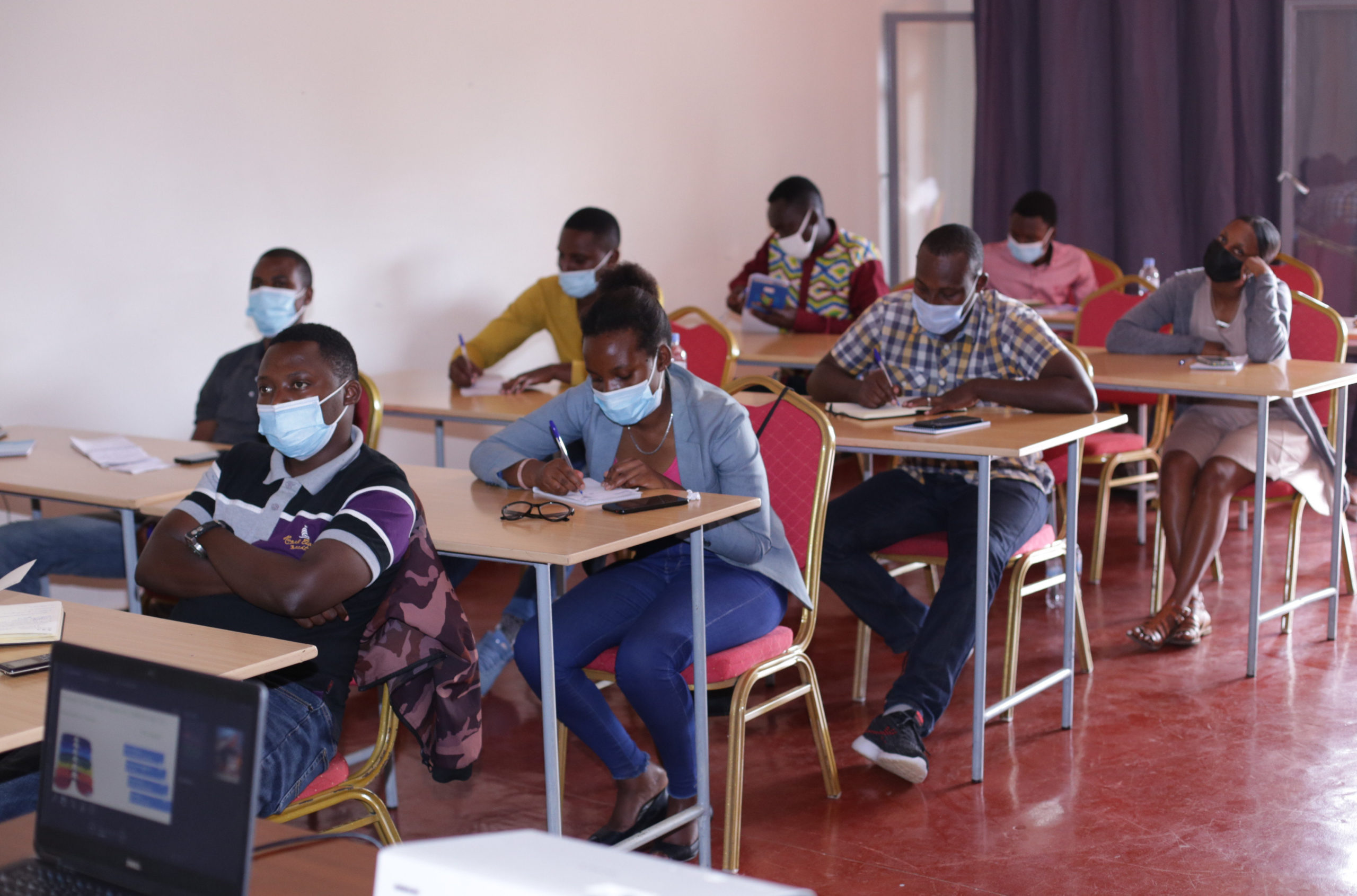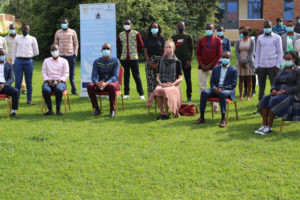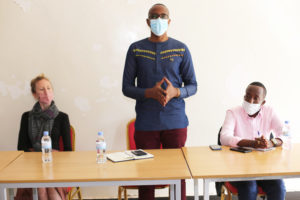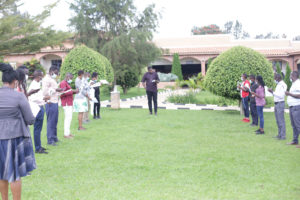Rwanda: Empowering young people to communicate for peace

Young people have played an important role in pushing a narrative that promotes peace, reconciliation and societal healing in Rwanda, since the 1994 genocide against the Tutsi. Training them to communicate well is key to ensuring that they feel more empowered and can actively participate in shaping their own futures.
On 26 May 2021, Interpeace and its partners trained some 42 young people in Rwanda’s Bugesera District to sharpen their critical thinking abilities and equipped them with the communication skills they need to promote peace and reconciliation.
“Young people participated immensely in the 1994 genocide against the Tutsi, mainly because they were uninformed and lacked analytical capabilities. The ruling regime at the time used the opportunity to feed them with hateful and genocidal ideology,” explained Hugues Mugemana, the lead trainer and Director of Communications at Rwanda We Want - a youth empowerment organisation.
During the genocide against the Tutsi and the period before, young people did not have the capacity to properly analyse information. As a result, they were fed with hateful and genocidal ideas which they believed without questioning. This exposed them to manipulation that had severe repercussions, as they got heavily involved in massacres that happened during the genocide. This communication training was therefore very important for young people in post-genocide Rwanda to avoid a repeat of what happened in the past.
“Social media, which the youth [mostly] rely on as a means of communication, exposes them to a lot of information, [some of which can be harmful]. This workshop helped them to analyse and critically process this information to make informed decisions that decrease their chances of being manipulated into actions that are detrimental to themselves and their societies,” said Mr Mugemana.
The workshop was organised by Interpeace in partnership with Bugesera District and in collaboration with Rwanda We Want, as part of our societal healing pilot programme in Bugesera District, funded by the European Union (EU).
The training responded to one of the programme’s objectives, to strengthen the capacity of young people to receive, process and digest the legacies of the genocide against the Tutsi; and to transform them in a positive way that helps them to manage trauma and develop a shared understanding for building a peaceful and inclusive future.
“Empirical studies and previous experiences have revealed transgenerational legacies of the genocide against the Tutsi. This training has strengthened the young people’s capacity to think critically and exploit modern-day communication channels to communicate for peace, make an impact in their communities and help fight misinformation,” says Ernest Dukuzumuremyi, Programme Manager at Interpeace Rwanda.
- Credits: Interpeace
During the workshop, facilitated by young people from Rwanda We Want, participants discussed the importance of drawing from young people’s experiences to communicate more effectively for peace.
“The training has equipped me with new skills that I need in my daily life. As an active communicator on social media, I learned how I can apply them in promoting peace, unity and reconciliation,” said Osée Nkurikiyimana, one of the trainees.
The training has provided participants with the skills they need to promote peace and to overcome hate and deceit, as they create positive impact in the Rwandan society. The Mayor of Bugesera District, Richard Mutabazi encouraged the youth representatives to use the skills gained from the workshop to communicate more efficiently and to fight misinformation.
On his part, Interpeace Rwanda Country Representative, Frank Kayitare talked about the importance of communicating properly to prevent violent behaviour. He advised the trainees to be confident in sharing information but should first assess its accuracy and credibility.
There was emphasis on the role of social media in uniting people, reducing stigma and stereotypes as well as in advancing peaceful coexistence.
Eleanor Friel, who represented the EU Ambassador in Rwanda during the opening session, commended Interpeace and Rwanda We Want for organising this communication for peace workshop in Bugesera District. She reminded the trainees that communication is very important in everyday life and for peacebuilding.
Our societal healing programme in Rwanda enhances capacities of communities through an innovative and holistic approach to expand investment in mental health, address trauma and advance social cohesion. The programme is funded by the EU through its instrument contributing to stability and peace (IcSP).

Credits: Interpeace


